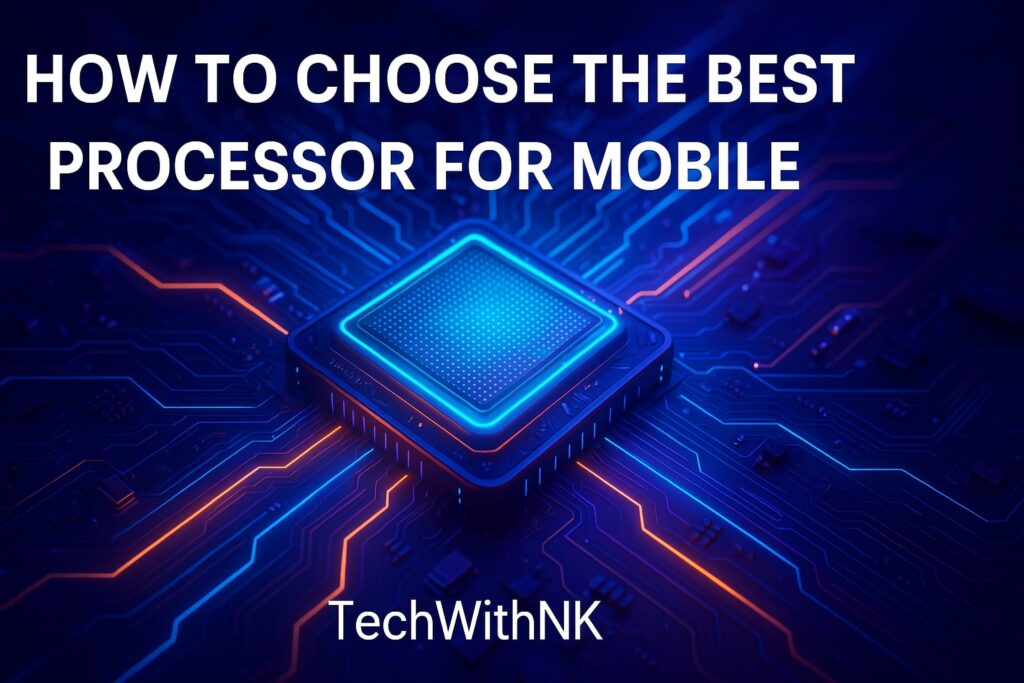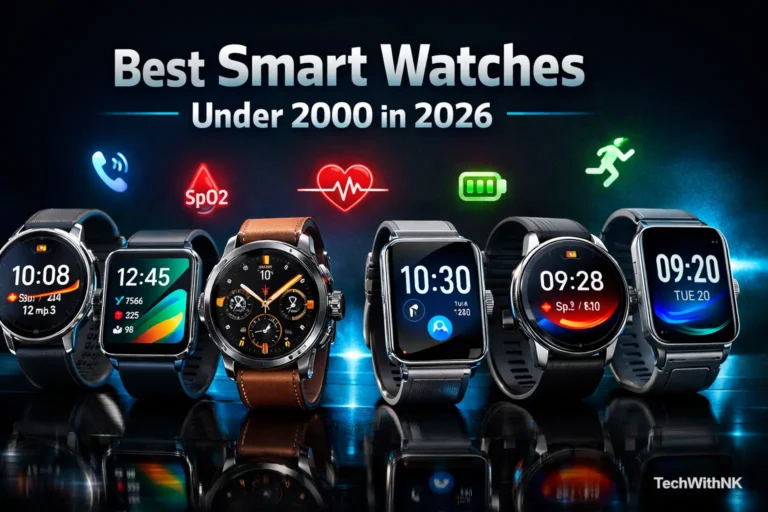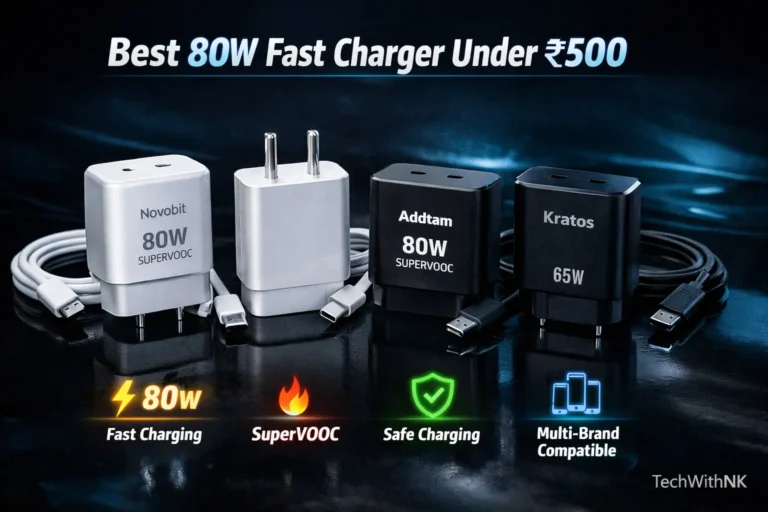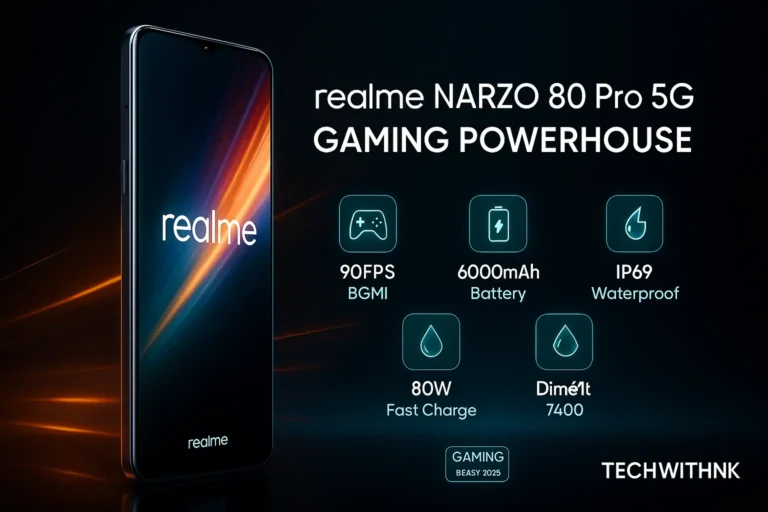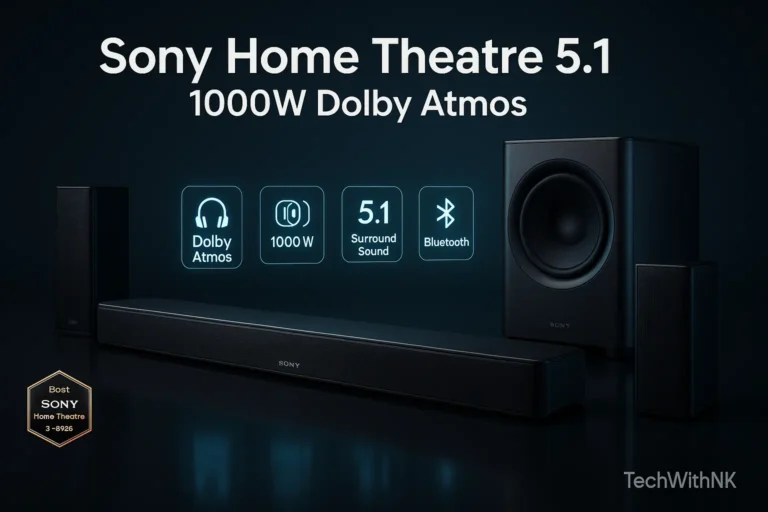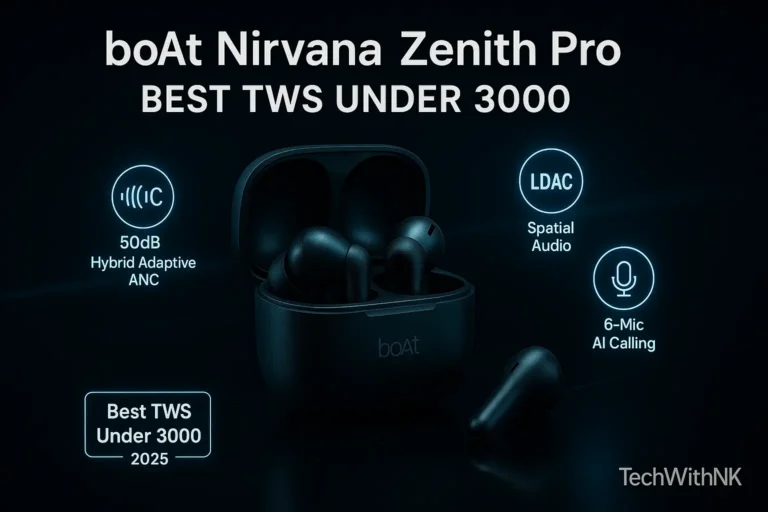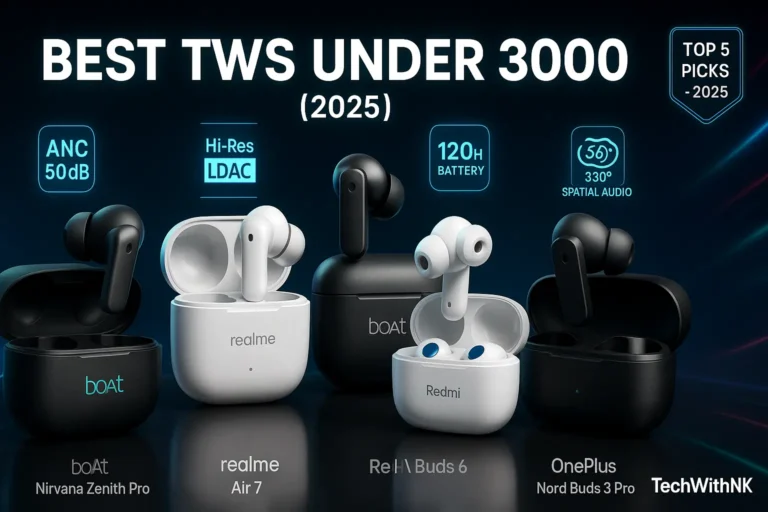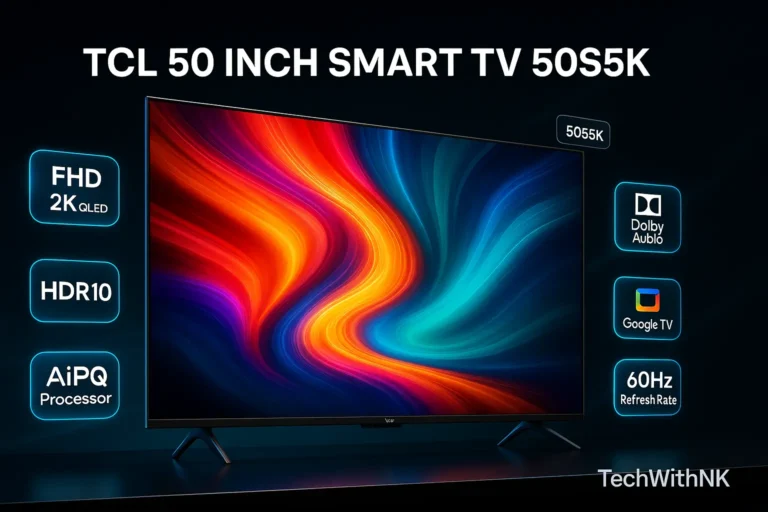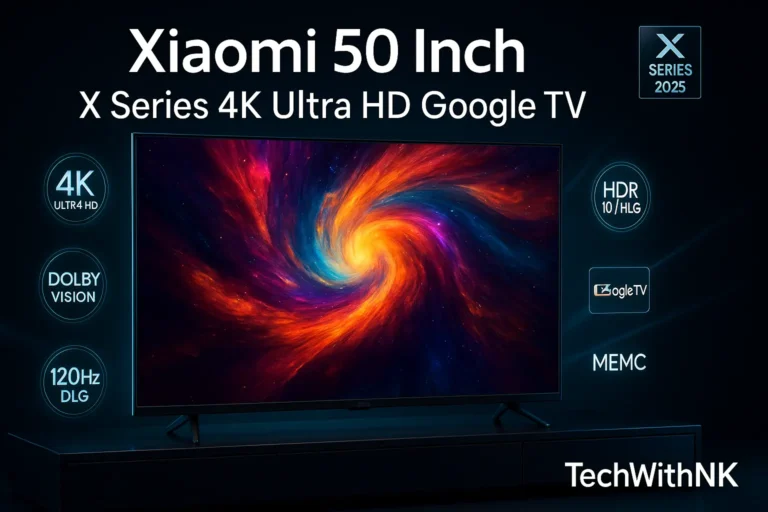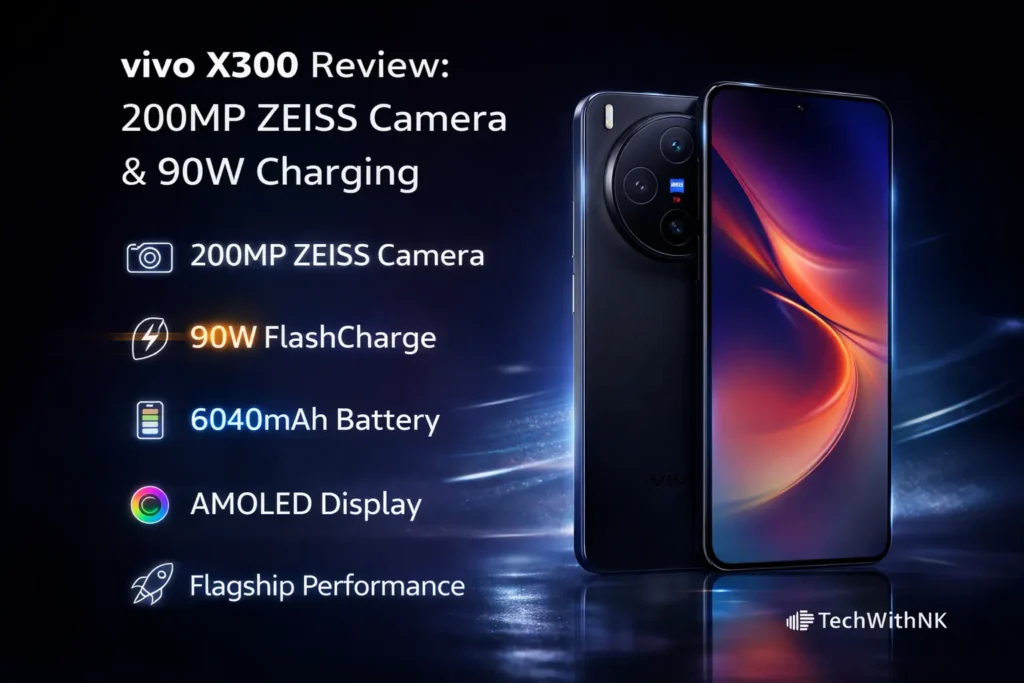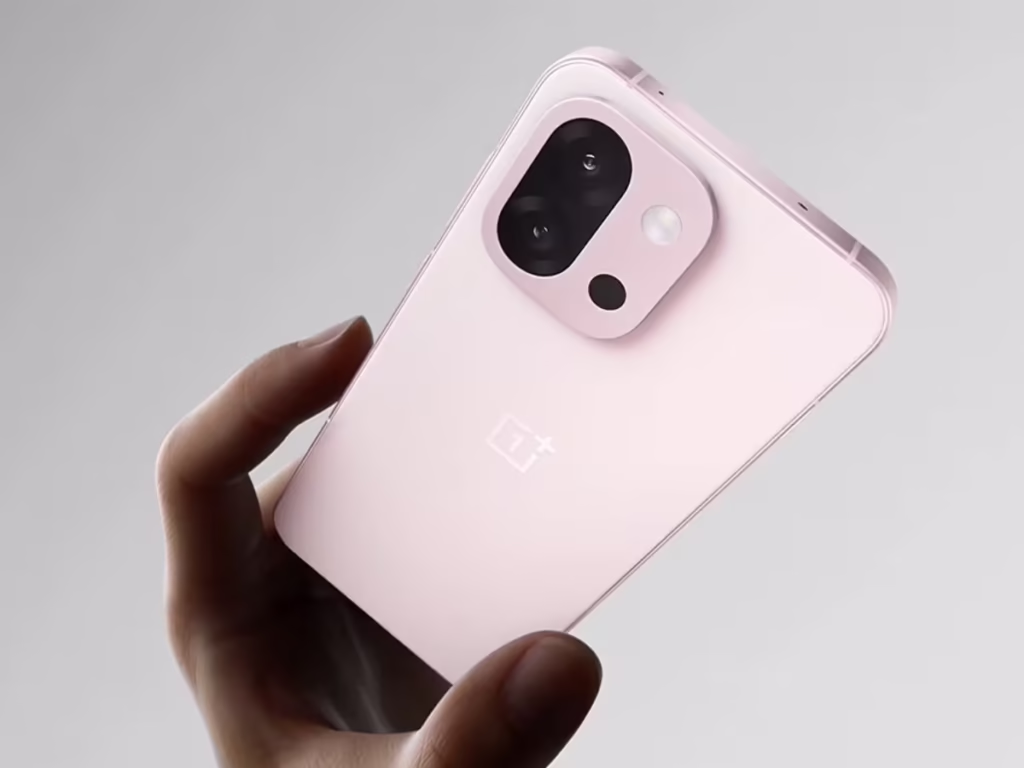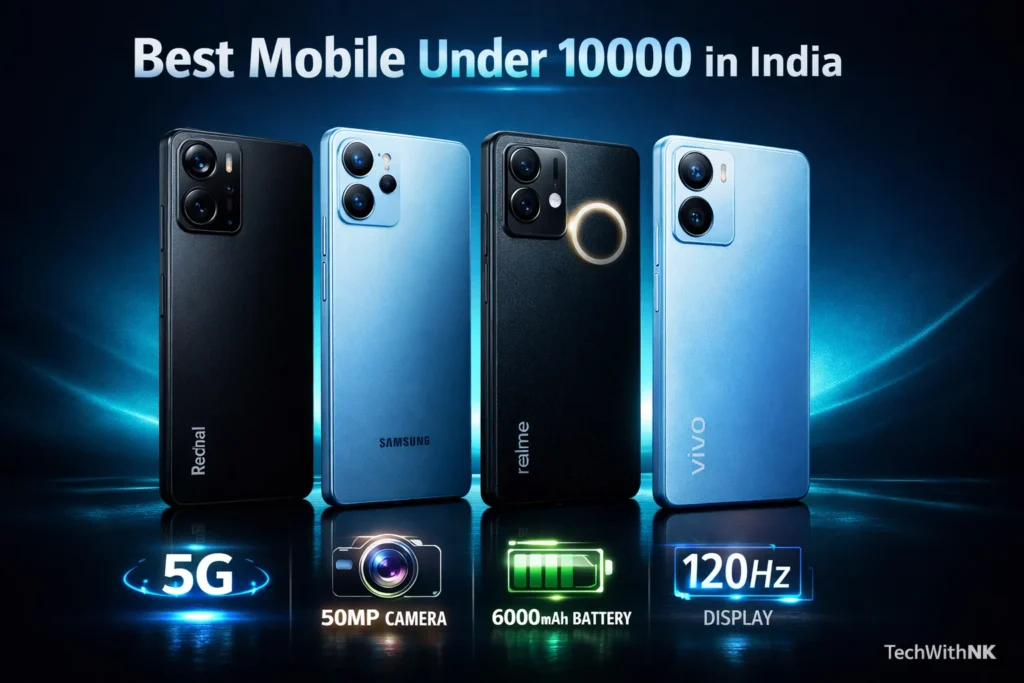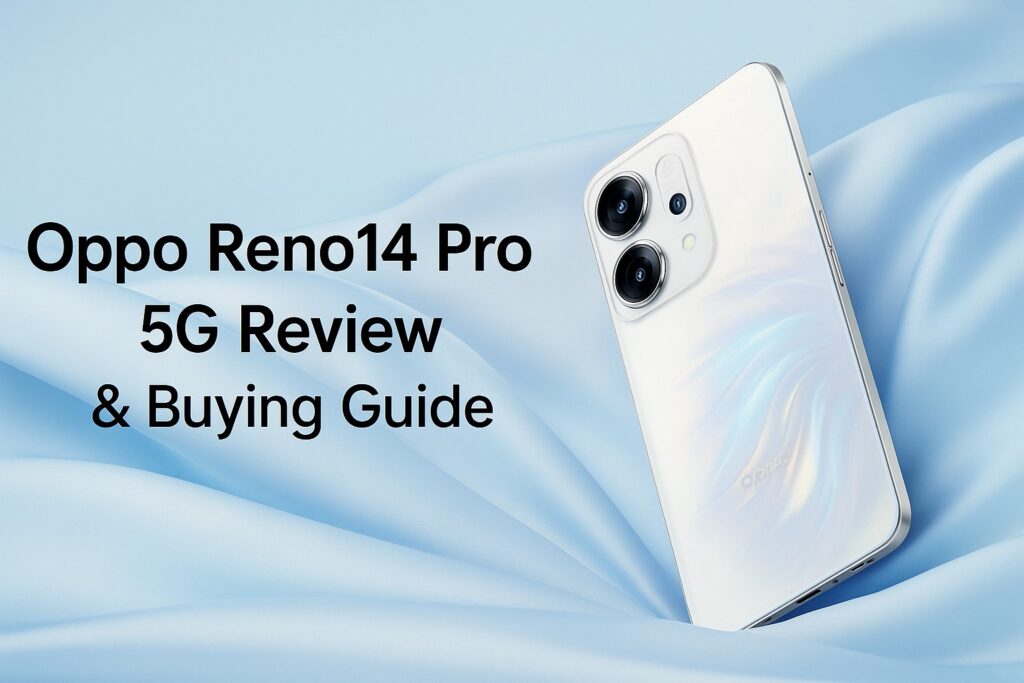Table of Contents
ToggleIntroduction To best Processor For Mobile
The processor (also called the SoC – System on Chip) is the brain of your smartphone. It controls everything from app performance and gaming to battery efficiency and camera processing. Choosing the best processor for your mobile is as important as choosing RAM, display, or storage.
In today’s smartphone world, names like Qualcomm Snapdragon, Apple A-series, MediaTek Dimensity, Exynos, and Google Tensor dominate the market. But how do you know which one is best for your needs—whether gaming, photography, multitasking, or casual use?
This blog will explain:
What makes a good mobile processor
Important factors like cores, clock speed, fabrication (nm), GPU, and AI engines
Brand comparisons (Snapdragon vs Dimensity vs Exynos vs A-series vs Tensor)
Tips for choosing the right processor for your budget and use case
🔑 Factors to Consider When Choosing a Processor For Mobile
1. CPU Cores & Architecture
Most processors today use ARM architecture with multiple cores.
Big cores (Performance) → Handle heavy tasks like gaming, video editing.
Small cores (Efficiency) → Handle light tasks and save battery.
Example: Snapdragon 8 Gen 3 uses 1x Prime Core + 5x Performance + 2x Efficiency cores.
👉 Rule: More cores ≠ always faster. Efficiency + architecture matters.
2. Clock Speed (GHz)
The clock speed tells how fast each core runs.
Example: 3.3 GHz prime core = very high performance.
But higher GHz alone does not guarantee efficiency (it must balance with heat & battery life).
👉 For most users, 2.5 – 3.3 GHz is excellent.
3. Fabrication Process (Nanometer Technology)
Processors are built on nanometer (nm) nodes: 4nm, 5nm, 7nm.
Smaller nm → less heat, more power efficiency, higher performance.
Example:
Apple A17 Pro – 3nm (extremely efficient)
Snapdragon 8 Gen 3 – 4nm
Budget processors – 6nm or 7nm
👉 In 2025, 3nm and 4nm chips are the best.
4. GPU (Graphics Processing Unit)
Controls gaming, video rendering, and graphics performance.
Qualcomm → Adreno GPU
MediaTek → Mali GPU (some with Immortalis)
Apple → In-house GPU for A-series
👉 If you’re a gamer, GPU is as important as CPU.
5. AI & Machine Learning (NPU/ISP)
Modern processors come with AI Engines for:
Faster photo & video processing
Voice assistants
Real-time translations
Better camera low-light performance
Example: Google Tensor is optimized for AI and computational photography.
6. 5G & Connectivity
Check if the processor supports:
5G bands (SA/NSA)
Wi-Fi 6E / Wi-Fi 7
Bluetooth 5.3 or higher
👉 Snapdragon and Dimensity are leading in global 5G compatibility.
7. Thermal Efficiency & Battery Life
A powerful processor that overheats is useless.
Look for reviews on thermal throttling (especially in gaming phones).
Efficiency depends on nm process + cooling system.
8. Benchmark Scores (Geekbench, AnTuTu)
Benchmarks give a quick comparison.
But real-world performance matters more.
Example: A phone with Snapdragon 7 Gen 3 (midrange) may feel smoother than a badly optimized Snapdragon 8 Gen 1.
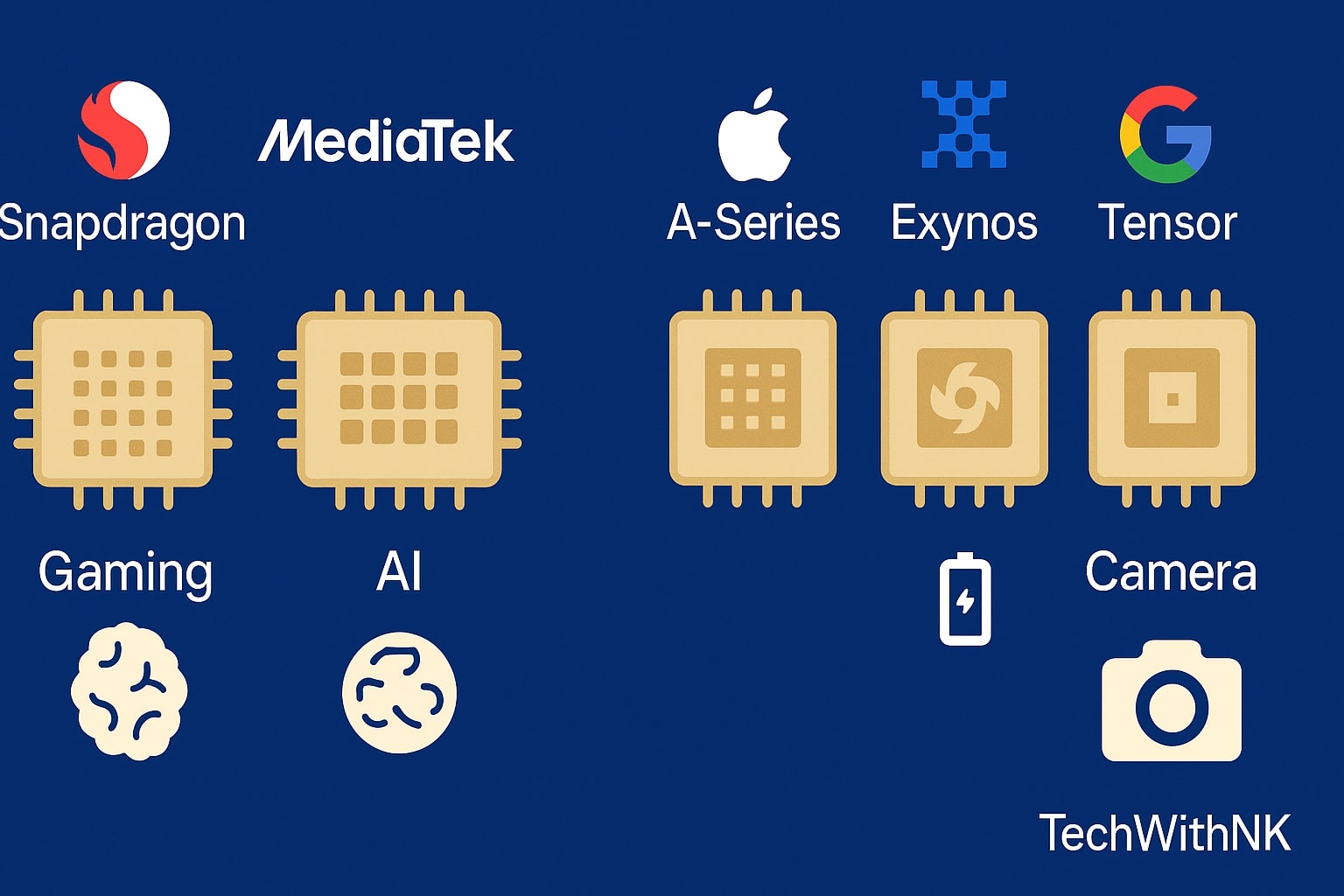
🏆 Popular Mobile Processor Brands Compared
1. Qualcomm Snapdragon
Known for balanced performance + efficiency.
Best for: Gaming, all-rounders, global 5G.
Examples:
Snapdragon 8 Gen 3 (flagship)
Snapdragon 7 Gen 3 (upper midrange)
Snapdragon 6 Gen 1 (budget 5G)
2. MediaTek Dimensity
Powerful + budget-friendly.
Recently competing with Snapdragon in gaming.
Examples:
Dimensity 9300 (flagship, AI focus)
Dimensity 8300 (upper midrange)
Helio G99 (budget gaming, 4G only)
3. Apple A-Series
Only in iPhones.
Known for best single-core performance and 3nm efficiency.
A17 Pro can run console-level games.
4. Samsung Exynos
Used in some Galaxy models.
Good but slightly behind Snapdragon in efficiency.
New Exynos 2400 is competitive with Snapdragon 8 Gen 3.
5. Google Tensor
Focused on AI + Camera.
Best for Pixel phones: Night photography, voice AI, translation.
Not the best in raw gaming.
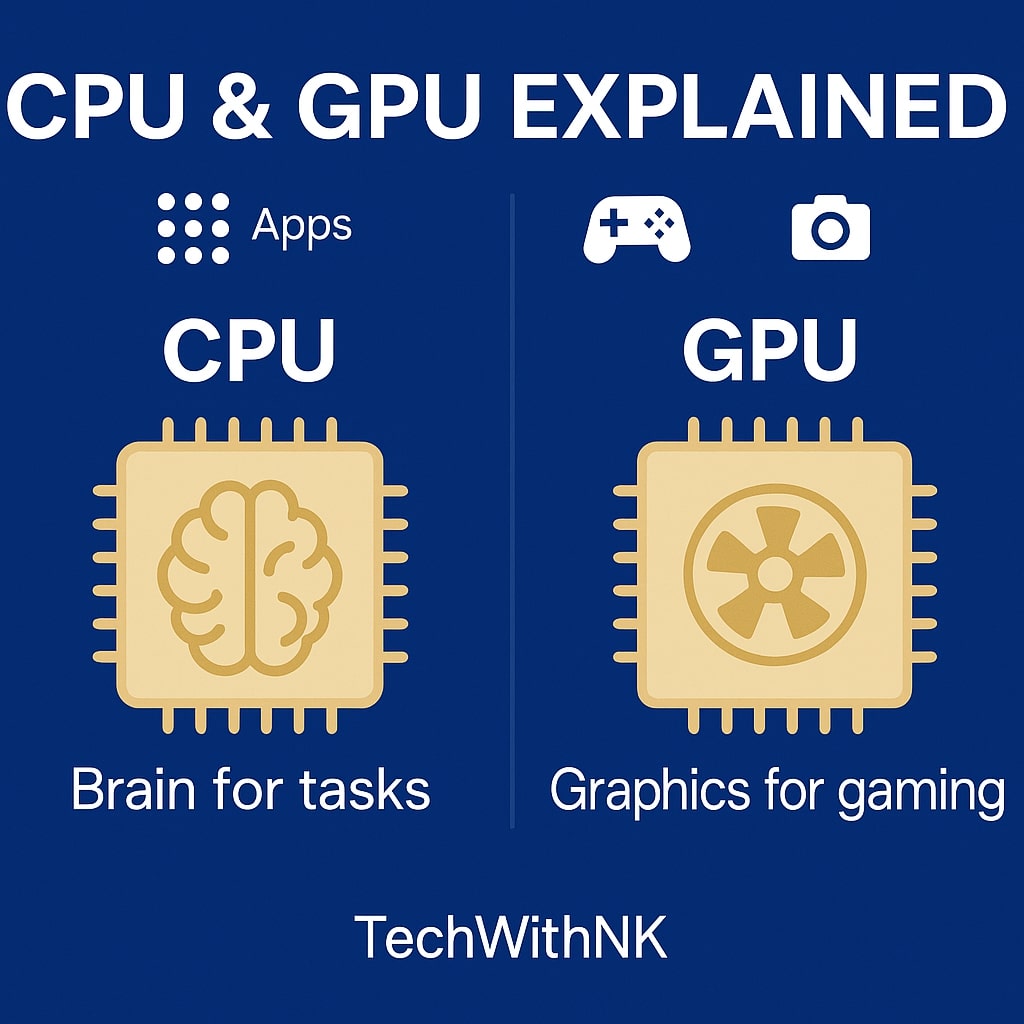
📊 Which Processor is Best for You?
🕹️ Gamers
Snapdragon 8 Gen 3 or Dimensity 9300 → top gaming chips.
Look for high GPU + cooling system.
📸 Photography Lovers
Google Tensor G3 (Pixel) or Apple A17 Pro → best for AI-based photography.
🔋 Battery Conscious Users
Choose 6nm or below fabrication chips.
Snapdragon 7 Gen 3 / Dimensity 8300 are efficient midrange choices.
💰 Budget Users
MediaTek Helio G99 or Snapdragon 6 Gen 1 → balance of price and performance.
⚡ Quick Buying Checklist
Flagship → Snapdragon 8 Gen 3 / Dimensity 9300 / Apple A17 Pro
Midrange → Snapdragon 7 Gen 3 / Dimensity 8300
Budget → Snapdragon 6 Gen 1 / MediaTek G99
AI & Camera → Google Tensor G3
Conclusion
Choosing the best processor for mobile depends on your needs and budget. Gamers should focus on GPU and thermal performance, photographers on AI + ISP, and casual users on efficiency.
With this guide, you now know how to compare cores, clock speed, nanometer size, GPU, AI, and connectivity across Snapdragon, MediaTek, Apple, Exynos, and Tensor.
👉 Always remember: The best processor is not the most powerful, but the one that fits your usage.
Which is the best mobile processor in 2025?
Snapdragon 8 Gen 3, Apple A17 Pro, and Dimensity 9300 are the top flagship processors in 2025.
Is MediaTek better than Snapdragon?
MediaTek Dimensity series is catching up, offering excellent gaming performance at lower prices. Snapdragon is still better for global 5G support and efficiency.
Do more cores mean better performance?
Not always. Architecture, efficiency, and optimization matter more than just the number of cores.

